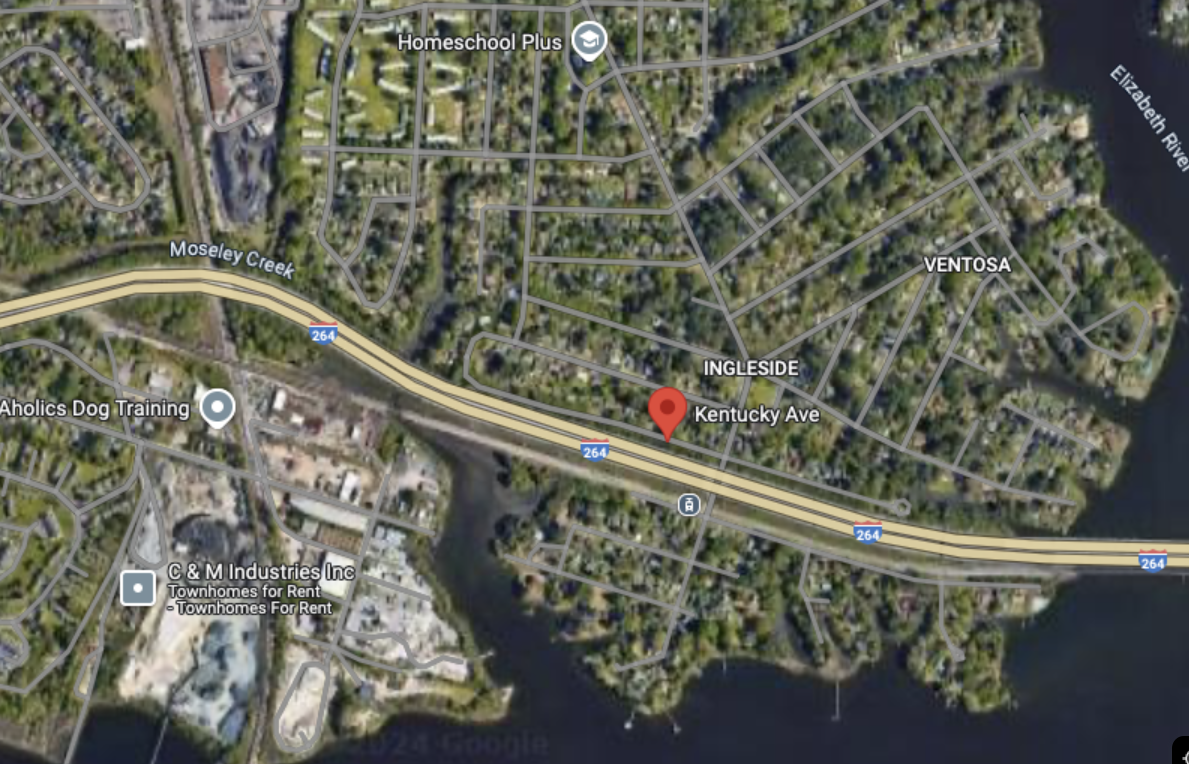
Kentucky Avenue (Norfolk)
Norfolk Green Sites Studio Projects (2018)
Graduate students from the University of Virginia’s 2018 Green Cities/Green Sites course focused on various locations in Norfolk, exploring ways to improve urban stormwater management tailored to the local environment.
Kentucky Avenue, Norfolk
The Kentucky Avenue site in Norfolk, VA, located within the Broad Creek Watershed, faces significant challenges related to stormwater management, invasive species, and underutilized public spaces. The area suffers from excessive runoff due to impervious surfaces, untreated water discharge into the nearby Elizabeth River tributary, and minimal access to the water.
To address these issues, a series of low-impact development solutions were proposed, including the installation of porous pavers for parking, an expanded riparian buffer with native plants, and increased tree canopy for stormwater absorption. Additionally, a boardwalk and kayak launch were recommended to enhance public access to the water while protecting sensitive habitats. These interventions aim to improve stormwater management, enhance community interaction, and mitigate pollution, making the site more resilient to climate change.
Reports & Presentations
“Kentucky Avenue Master Report” (2018)
“Kentucky Avenue Presentation” (2018)


